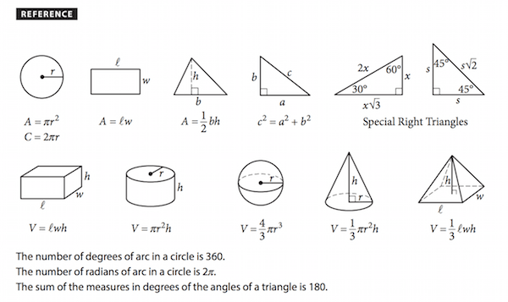
Taking the SAT can be both stressful and boring, and sitting in a testing center is no one's idea of a fun Saturday morning. Why take the SAT, then? You may have heard that more and more colleges are becoming test optional, so is it still worth it to take the SAT? In this article, we'll talk about all the reasons to take the SAT, including why it might be a better test for you than the ACT.
Standardized test scores are an important part of college admissions, but they also have value beyond that: taking the SAT can earn you tens of thousands of dollars in financial aid or help you get a job! Below are the five key reasons why to take the SAT.
#1: Most Colleges Require Test Scores
There are some colleges that don't require scores—schools that are test-optional or even completely test-blind. Test-optional policies became much more popular as a result of the coronavirus pandemic, when many students couldn't take the SAT or ACT. Most schools became test optional only temporarily, but some decided to make it a permanent change.
That being said, standardized test scores are still an important part of the application process, and most colleges want to see your scores from the SAT or ACT. Even if a school is test optional, having a strong test score will boost your application and help you stand out from the crowd. If you decide not to take the SAT, it can limit the colleges you're able to apply to and cause you to lose out on a chance to make your application even more impressive.
Taking the SAT or ACT thus means keeping a considerable number of college options open that would otherwise be closed to you.
#2: There Are Scholarships for High Scorers
It's very common for colleges to award merit-based financial aid to top applicants. Test scores are often one of the most important factors in determining which students get scholarships and which don't. Even if the schools you're applying to are test optional, they may still require SAT or ACT scores for financial aid. Because financial aid packages are often worth tens of thousands of dollars, it'd be well worth your time to take the SAT to be eligible for these awards, even if the exam is not technically required to apply to the school.
 Despite what this picture suggests, money does not simply grow on trees.
Despite what this picture suggests, money does not simply grow on trees.
#3: Your State or High School Might Require It
Surprise! Even if the none of the colleges you're applying to require the SAT, you still might end up taking it if your high school requires it or if you live in one of the states that requires the SAT. In these cases, you'll take the SAT at school, during the school day. You can send scores from these in-school tests to colleges the same way you would with any other SAT scores, but you also aren't required to send them if you aren't happy with how you did on the exam.
#4: Some Jobs Require Test Scores
This may seem odd, and it's certainly a newer trend. Still, some potential bosses want to see your standardized test scores before they hire you.
This doesn't just apply to test prep jobs, either; this requirement pops up in consulting and finance-related jobs, too. And, according to the Wall Street Journal, it's getting more common.
It may not be standard practice, but you don't want to pass on the perfect job because an employer wants SAT scores and you don't have them.
#5: The SAT Might Suit You Better Than the ACT
If you decide that it is in your best interest to take a standardized test, you have options. The SAT's competitor is the ACT, and, despite what you might think, there are actually some significant differences between the two tests. We have an entire article devoted to helping you decide between the SAT and ACT, but here's a summary of five key differences:
The SAT Doesn't Have a Science Section
The SAT incorporates some scientific passages in its test, but there's no all-out science section. The ACT's science section contains 40 questions and accounts for a quarter of your final ACT score. Despite its name, ACT Science focuses on graph and data interpretation rather than scientific facts like what photosynthesis is or the parts of a cell.
The SAT has questions that test concepts similar to those in ACT Science, but not nearly as many of them. So, if you want to minimize the number of questions asking you to analyze graphs, charts, and data, the SAT may be a better test for you.
The SAT Tests Fewer Math Topics
In regard to math content, both the ACT and SAT have a big emphasis on algebra. However, the ACT also tests certain math topics that the SAT either doesn't focus on as much or excludes entirely.
On the ACT, roughly 30-45% of the math questions focus on geometry. In contrast, geometry accounts for less than 10% of SAT Math questions. Additionally, trigonometry accounts for about 7% of the ACT but less than 5% of the SAT, so there's a slightly larger emphasis of trig on the ACT than there is on the SAT.
The ACT also tests a few concepts that the SAT doesn’t test at all, such as matrices, graphs of trig functions, and logarithms.
Which math section you prefer is largely a matter of your preferences and individual strengths. If algebra is a particular strength for you, the SAT may be a better choice because it has more algebra questions. Similarly, if you struggle with math, you may also appreciate that the SAT tests fewer math concepts in general, meaning you have to study fewer math topics.
The SAT Provides a Math Formula Sheet
Here's another math-related difference: the SAT provides you with a diagram of math formulas, whereas the ACT does not.
Before the two SAT Math subsections, you'll be given a diagram containing 12 geometry formulas and three laws:

Unlike the SAT, the ACT doesn’t give you any formulas on test day, meaning you must memorize all potential formulas before taking the test. If the security of having a formula sheet makes you feel more confident to take on math questions, that's another plus for the SAT.
The SAT Organizes Its Reading Questions
SAT Reading questions come in the order of the progression of each passage, complete with line numbers to help you find the point of reference. The ACT lacks these features; it involves a lot more scrambling to situate what the questions are even discussing. If the extra help that the SAT provides is important to you, consider taking the SAT rather than the ACT.
The SAT Gives More Time Per Question
Standardized tests are always going to have a time crunch. However, the SAT gives you a little extra breathing room compared to the ACT. The chart below shows how many minutes and seconds are allocated to each question on both tests. What you'll see is that the SAT is slightly less rushed.
| SAT | ACT | |
| Minutes per math question | 1:23 | 1:00 |
| Minutes per reading question | 1:15 | 0:53 |
| Minutes per writing/English question | 0:48 | 0:36 |
If you get nervous or overly stressed under time constraints, the SAT is the test for you. You'll still have to compete with the clock, but it won't be quite as frantic as the ACT.
 Time is precious on a standardized test.
Time is precious on a standardized test.
Conclusion: Why Take the SAT?
Taking the SAT (or ACT) seems to be the decision most college-bound students make. There is, in fact, very good reason for this pattern; as discussed above, these tests can help you find your way into college, get a scholarship to pay for college, and even land a job down the road.
There are also some distinct reasons that the SAT may serve many students better than the ACT.
Whether you're wondering whether to take any standardized test or second-guessing your decision to sign up for the SAT in the first place, you can use this article to review and consider the merits of the test.
What's Next?
Wondering what all this means for the ACT? Take a moment to read about whether you should take both tests or only one.
This article has touched on how the two tests are different, but do also take some time to investigate the issue in more detail. We've got a comparison chart that should do just the trick.
Since math is a point of especial concern for many students, you may want to read a more detailed analysis of how ACT and SAT math are the same and different.













